We all know that without water, plants cannot survive. But while a lack of water will kill a plant, too much can be just as hazardous. Navigating the right balance can be tricky, even for the most experienced gardener! Luckily, there is a tool that can help: a soil moisture meter.
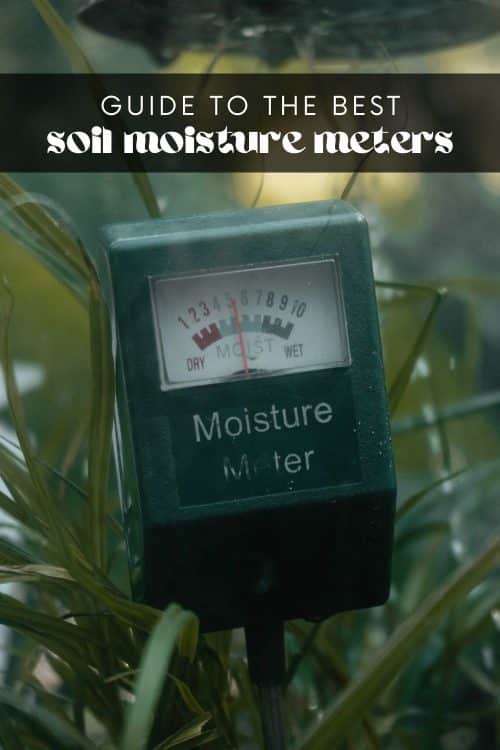
What Does a Soil Moisture Meter Do?
Essentially, a soil moisture meter measures the water in your soil. It does this by sending an electrical current into the soil, which will then be affected by the amount of moisture present.
The meter will then give you a reading showing how much water is in the soil.
Certain soil moisture meters will also measure the pH levels of your soil. This gives you an idea of how acidic or alkaline it is, so you can fine-tune your plants’ nutrient intake.
Some more benefits of using a soil moisture meter include the following:
- Accurate readings for more precise watering schedules
- The ability to check soil moisture at any time of the day
- Helps to understand your plant and its needs better
- Saves water (by not overwatering plants)
- Helps you detect plant problems early on, so you can address them quickly
So if you’re looking for an easy and effective way to ensure your plants get the water they need, a soil moisture meter is worth considering!
The 5 Best Soil Moisture Meters
From reliable analog meters to high-tech digital models, there’s sure to be a soil moisture meter that fits your needs and budget. Here are some of the best soil moisture meters currently available:
1. XLUX T10 Soil Meter
The Xlux Soil Moisture Meter has to be one of the best options on this list. It’s simple to use, has an easy-to-read display, and is incredibly accurate.
While it’s an analog meter, there’s no confusing dial to decipher. It reads the soil moisture levels with a simple 10-point color-coded system, so you know exactly when to water your plants! Red means the soil is dry, green indicates moist soil, and blue means it’s wet and doesn’t need watering.
Not to mention, using the Xlux soil moisture meter is a breeze. Just stick the probe into the soil, and the dial will immediately show you the reading. As it’s an analog moisture meter, you don’t need to calibrate it, which makes the Xlux a good choice for the no-fuss gardener.
Plus, you don’t have to bother with batteries or charging because it’s ready to use straight out of the box!
While the Xlux soil moisture meter may not be as flashy as some of its digital counterparts, it is reliable and gets the job done – which is all you really need in a soil moisture meter.
Key Information:
- Suitable for indoor and outdoor use
- An analog meter with a 10-point color-coded system
- No batteries or calibration needed
- 7-inch probe
- Not suitable for very hard soil
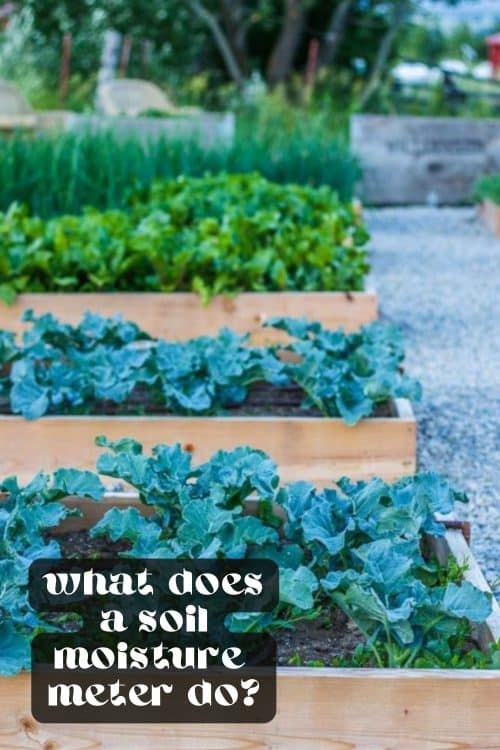
ECOWITT WH0291 Soil Moisture Tester
The ECOWITT Soil Moisture Tester is a handy device with a wireless probe and a digital display console. In just 72 seconds, the probe will measure the moisture content in your soil, and the digital display will give you a detailed reading.
The digital display shows your plant’s moisture levels as a percentage reading, which is clear and easy to understand. The ECOWITT display monitor can even be placed up to 300 feet away from the probe and still provide an accurate reading! However, the probe isn’t very long, so it doesn’t go far down into the soil. Keep that in mind if you have deep-rooted plants. I personally only use the ECOWITT on my indoor plants for this reason.
But here’s what I love: It’s wireless! No tangled cords or restrictions. You can measure moisture content from a distance, making it super convenient.
Key Information:
- Suitable for indoor and outdoor use but limited to shallow-rooted plants
- Wireless probe with digital display monitor
- Readings in 72 seconds
- Digital display
- Requires batteries
- 3-inch long probe
- Features a clock
Dr.Meter Soil Moisture Sensor Meter
The Dr.Meter Soil Moisture Sensor Meter does exactly what its name implies – it measures the moisture content in your soil to ensure optimal watering for your plants!
It features an 8-inch metal stem that reaches far into the soil and gives accurate readings. The dial is easy to read and color-coded, showing you if the soil is moist, dry, or wet. The best part? No batteries or charging is needed, and it works both indoors and outdoors!
But while the Dr.meter moisture sensor is great for indoor and outdoor use, it won’t work on hard ground as it could get damaged. You should also avoid submerging it in waterlogged soil. The Dr. Meter is definitely worth considering for a no-frills and no batteries-required best moisture meter.
Key Information:
- Suitable for indoor and outdoor use
- An analog meter with a color-coded system
- No batteries or calibration needed
- Accurate and sensitive readings
- 8-inch probe
- Not suitable for hard or waterlogged soil
REOTEMP Garden and Compost Meter
It isn’t just your plants that need to be watered – your compost pile also needs hydration. That’s where the REOTEMP Garden and Compost Moisture Meter comes in!
The REOTEMP moisture meter is extremely durable and hardy. The 15-inch stem is constructed from durable stainless steel and can even penetrate very hard soil. On the top of the stem is a color-coded dial that shows you how dry or wet your compost is.
You do have to calibrate the REOTEMP before use, but it isn’t difficult. Just follow the instructions, and you’ll be able to get accurate readings in no time! I love that the calibration works for plants and compost, meaning this meter isn’t limited to just one use. The REOTEMP soil moisture meter does require one AAA battery to work.
Replacing the battery can be a little tricky, as the battery compartment is securely sealed – but the accuracy of the readings definitely makes up for this inconvenience.
Key Information:
- Suitable for outdoor plants and compost piles
- An analog meter with a color-coded system
- Requires one AAA battery
- 15-inch probe
- Heavy-duty and easy to use
- Requires calibration
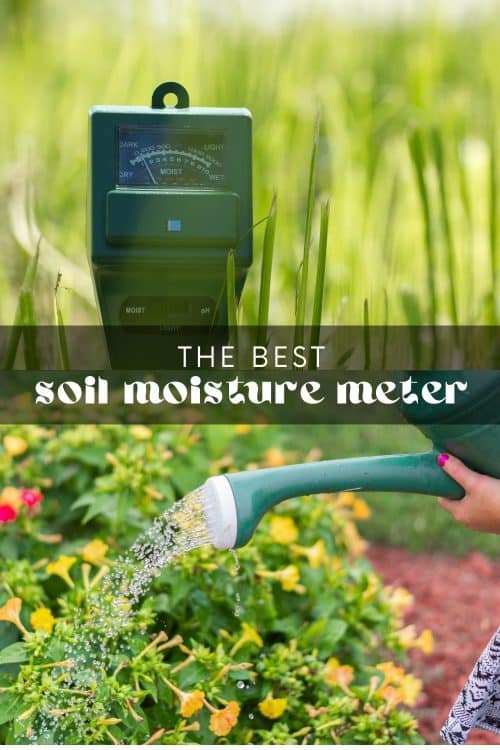
Kensizer Soil Moisture and pH Tester
Accurate moisture readings are crucial, but knowing the soil’s pH level is also important for certain garden plants. Some plants prefer acidic soil, while others need alkaline. That’s why the Kensizer Soil Moisture and pH Tester is such a great soil tester.
This set of Kensizer soil meters offers an analog pH meter and moisture meter. The analog gauges are easy to read, and the 10-point color-coded system ensures accuracy. There’s no need for batteries, which is ideal if you want something low-maintenance.
The probes on the Kensizer are the perfect length for both indoor and outdoor use – and the readings are quick and easy. So, if you want to know your soil’s moisture content and pH level, the Kensizer Soil Moisture and pH Tester is a great choice!
Key Information:
- Suitable for indoor and outdoor use
- An analog display with a 10-point color-coded system
- No batteries or calibration needed
- Measures moisture, pH, and also light levels
What to Consider When Choosing a Soil Moisture Meter
Not all soil moisture meters are created equal. There are many things to consider when picking the right one for your garden.
Let’s take a look at the features you should check when selecting a soil moisture meter:
Outdoor vs. Indoor Use
Are you an avid outdoor gardener, or do you prefer to keep your plants inside?
Indoor soil moisture meters are often smaller, and while they aren’t usually as durable as their outdoor counterparts, they are perfect for those who prefer to keep their plants indoors.
If you’re checking the moisture levels of outdoor plants, you’ll want a more durable meter that can handle the elements. The probe on moisture meters designed for outdoor use is also often longer.
A longer probe is ideal for larger garden beds as they allow for deeper readings. On the other hand, a shorter scope length is great for smaller flowerpots and containers. Consider your gardening style when choosing the best plant moisture meter for you.
Accuracy and Sensitivity
It’s important to choose a soil moisture meter that is both accurate and sensitive. Soil moisture meters with calibration features are often the most accurate. User-calibrated soil moisture meters can help you fine-tune your readings for more precise measurements.
However, analog soil moisture meters without calibration can be just as good! Always read customer reviews before making a purchase, as this will help you make an informed decision.
Digital or Analog
Do you prefer the ease of a digital readout, or do you want something more traditional?
Analog moisture meters are straightforward to use and are often the more affordable option. Alternatively, a digital moisture meter can offer additional features like pH readings or soil temperature. Some digital soil meters are also known for being more accurate compared to their analog counterparts. But remember, digital meters will need some form of battery or power source (charging) to work.
Whether you go for a digital or analog soil moisture meter is up to you. Both have their pros and cons, and it all comes down to personal preference.
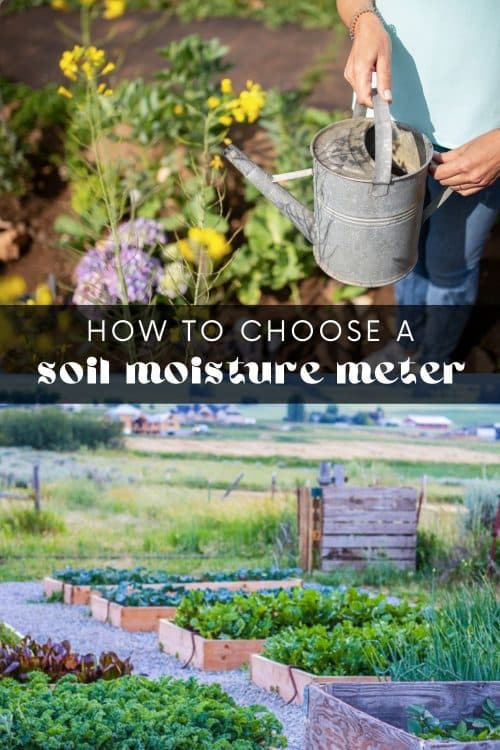
Soil Type
You can choose pretty much any soil moisture meter if you’re only checking loose soil. But if you’re checking the moisture levels of clay or loam soils, you should opt for a soil moisture meter with a durable probe. Hard or compacted soils can put a lot of strain on the probe, so it’s essential to make sure you pick one that is up for the task.
Never force the probe into the soil; instead, use a stick or other tool to loosen up any compacted areas.
Additional Features
Many people are happy with a basic soil moisture meter to measure water level in their soil. But some gardeners want more, and there are certainly soil moisture meters that can offer them just that!
For instance, some soil moisture meters have additional features like light and pH readings or even temperature sensors. While these are nice-to-have features, they can affect the device’s price. It’s important to weigh the cost with the features before making your purchase.
Smart Technology
Finally, consider if you would like a soil moisture meter that has an app or software to log your readings. This is a great tool for gardeners who want to track their plants’ progress over time.
Some smart soil moisture meters have the added bonus of alerting you when your soil needs watering. This is great for those without time to check their soil’s moisture levels regularly. But with these modern features can come a higher price tag. Always consider why you want a soil moisture meter, and choose one that best fits your needs.
Finding the right soil moisture meter for your garden doesn’t have to be overwhelming. Remember the features you want and need, and choose one that fits your budget. With the right tool, you can give your plants just the amount of water they need for happy and healthy growth!
Check out these Gardening Posts:
- DIY Tall Planter Box
- DIY Self-Watering Window Boxes
- When to Plant?
- How to Set Up a Garden Drip System
- Gardening Tips for Beginners
- Winter Squash Storage
- Tips for Growing Herbs Indoors
- Building Raised Wooden Planter Boxes
- Starting Plants from Seed Indoors
- How to Make Hummingbird Food
- How Long Do Potatoes Take to Grow?
- How to Grow and Harvest Lettuce
- The 5 Best Soil Moisture Meters
- How to Grow Jalapenos
- How to Grow Green Onions
- How to Grow Big Tomatoes in Pots
- How to Grow Broccoli
- How to Grow a Corn Plant
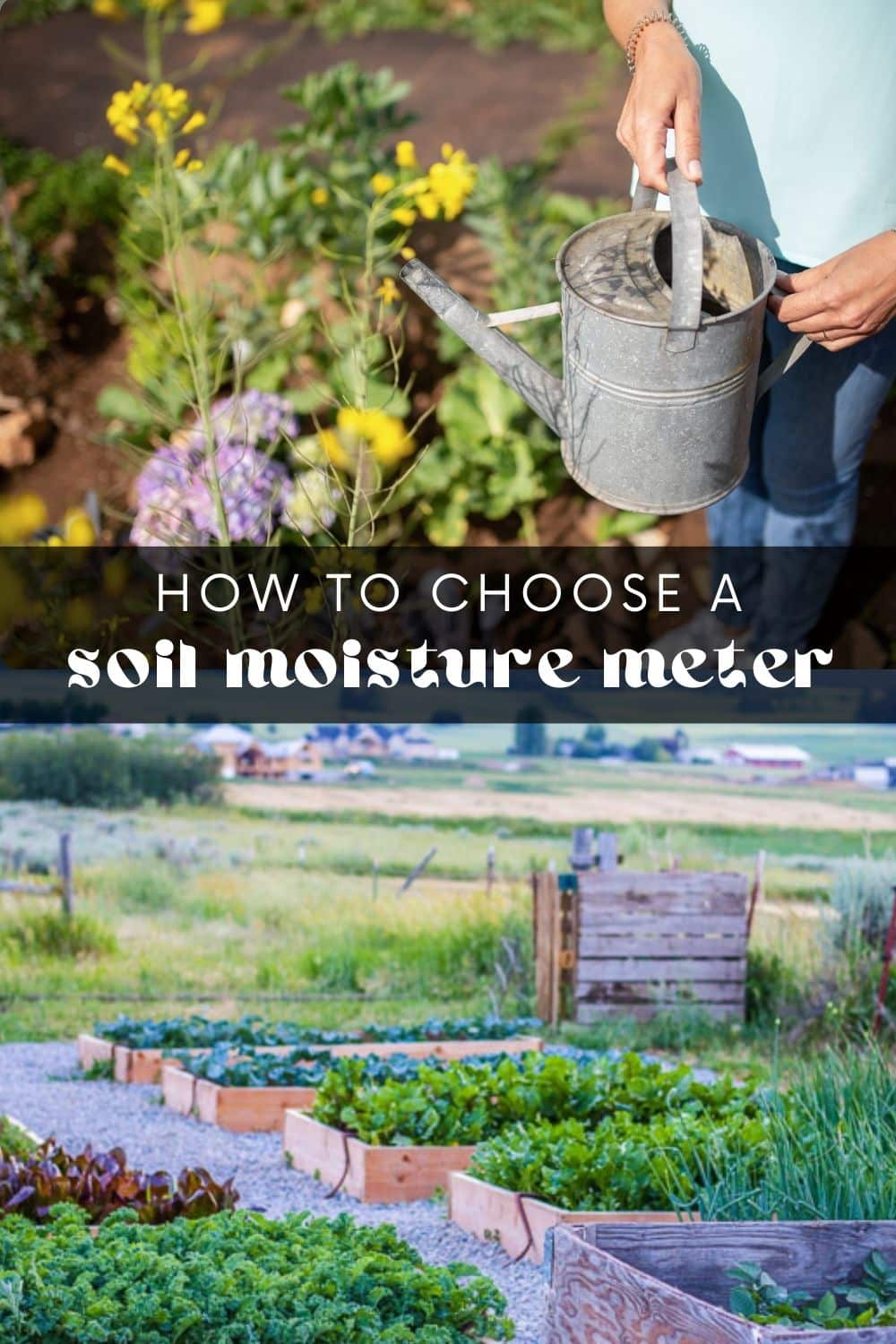
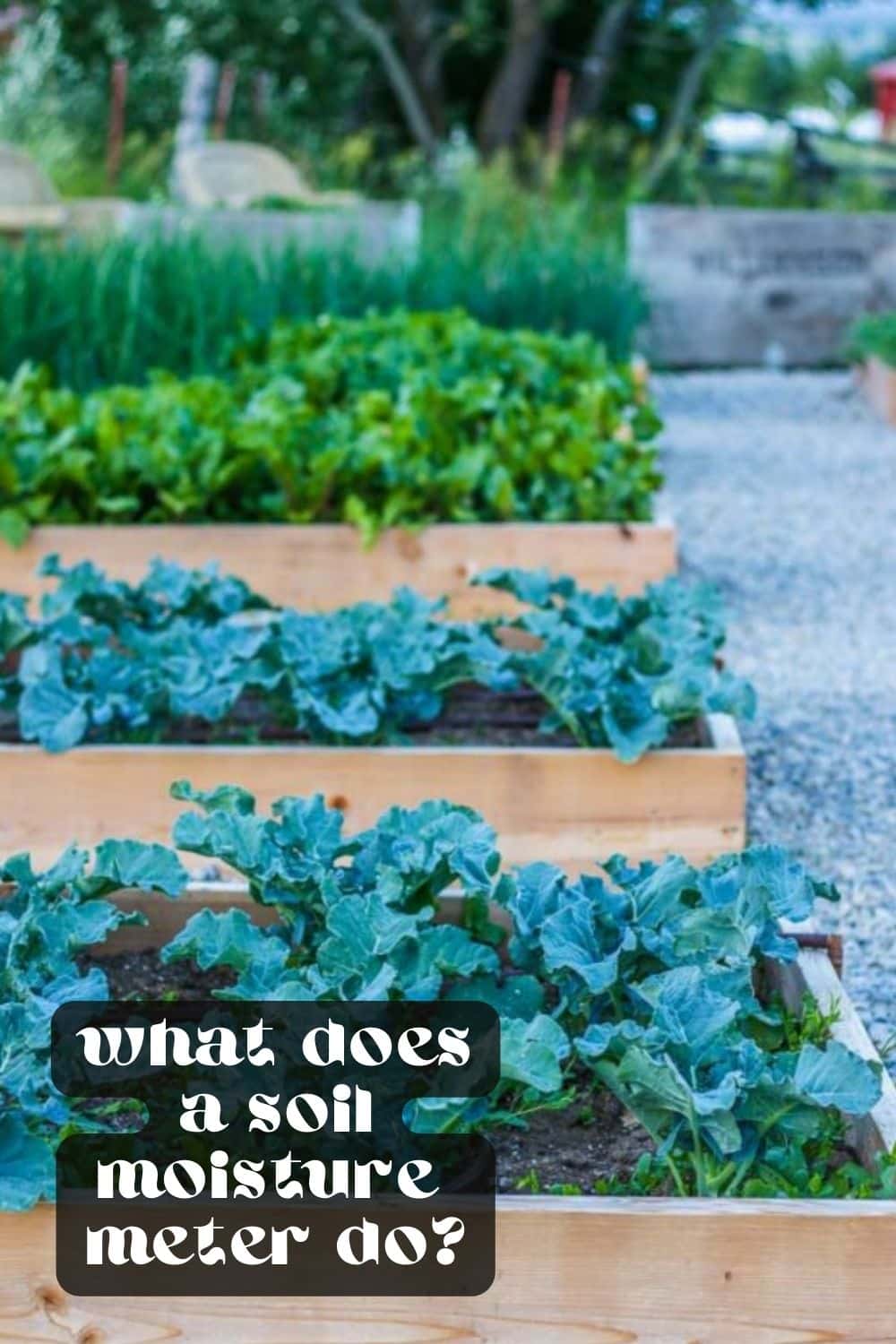
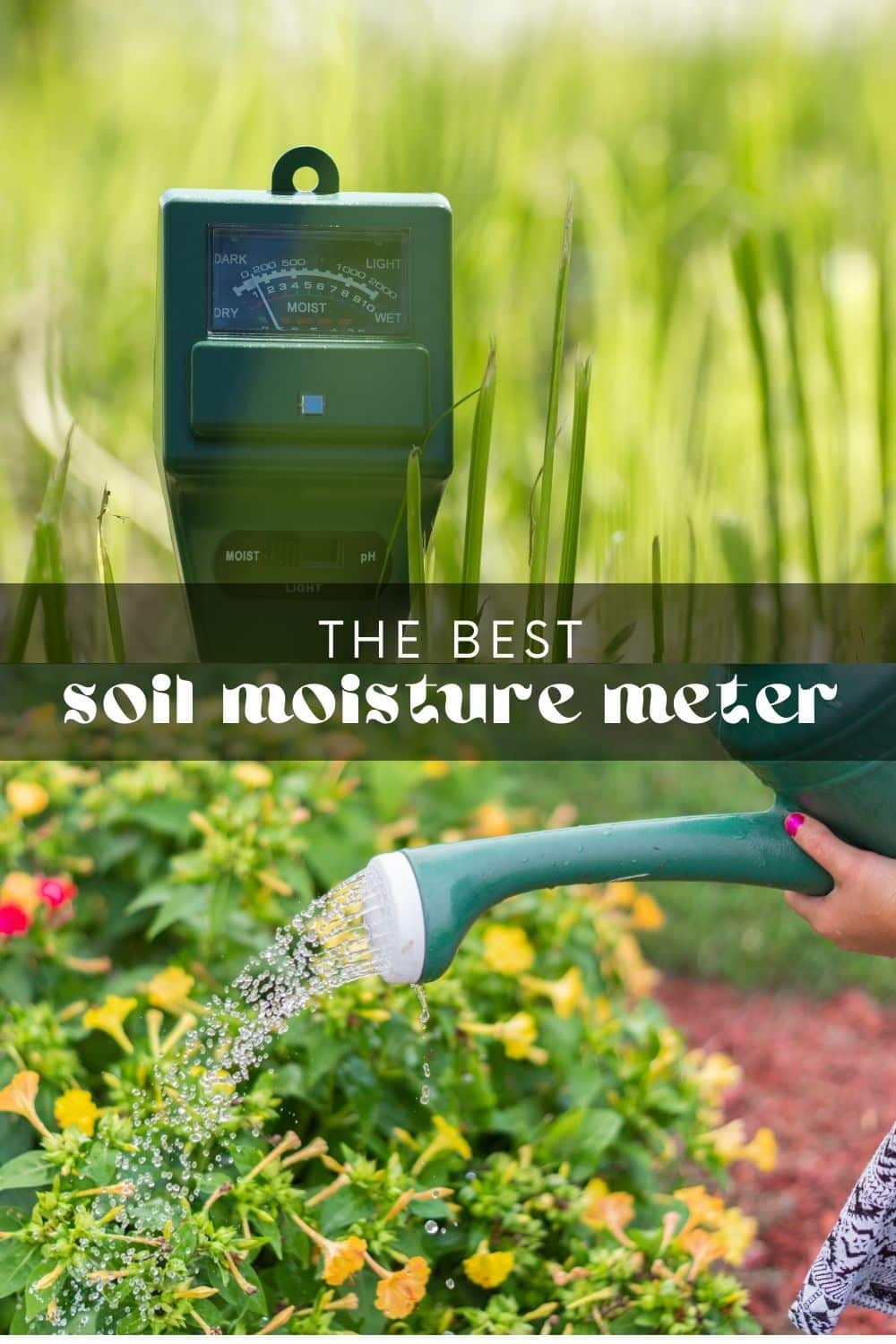
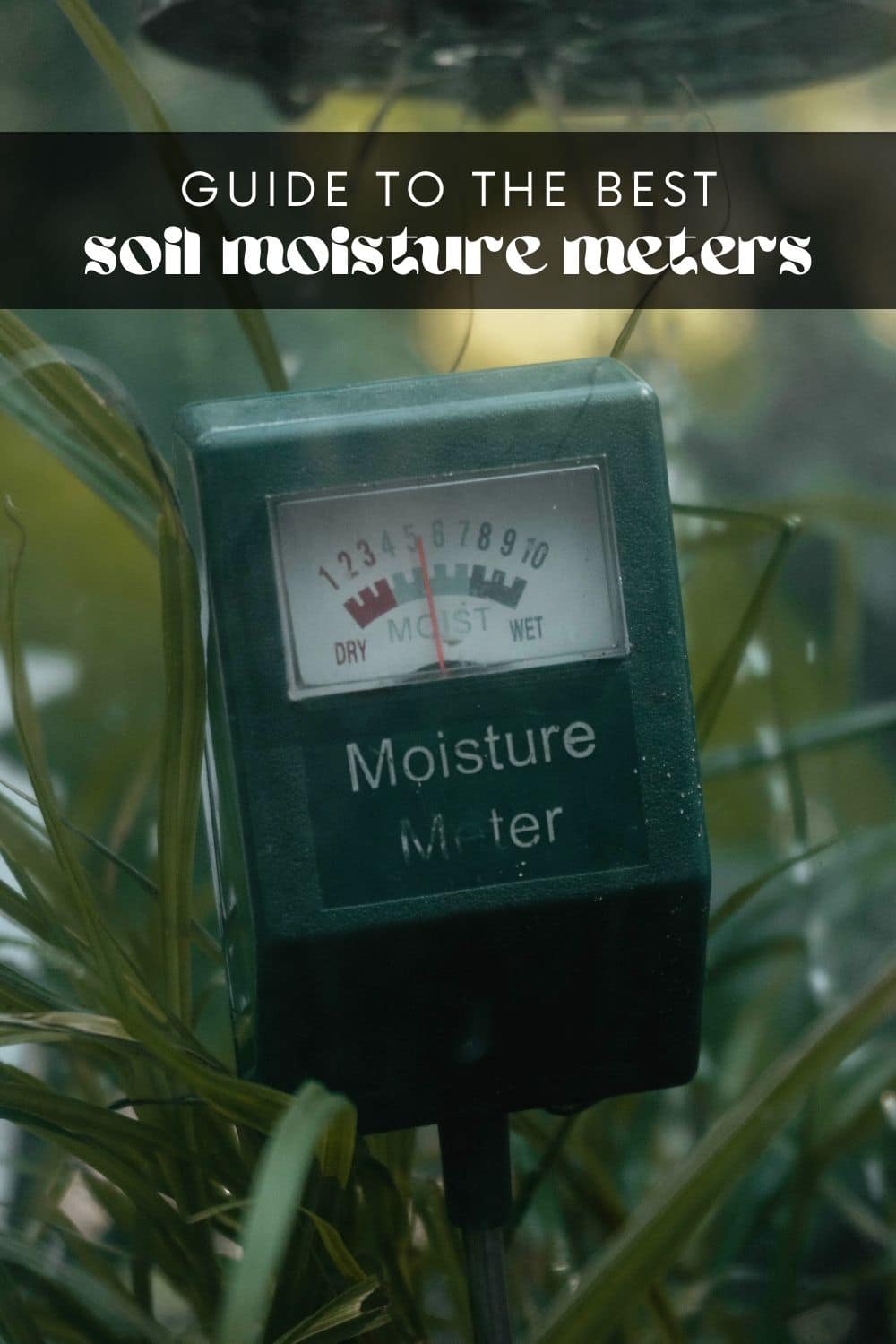
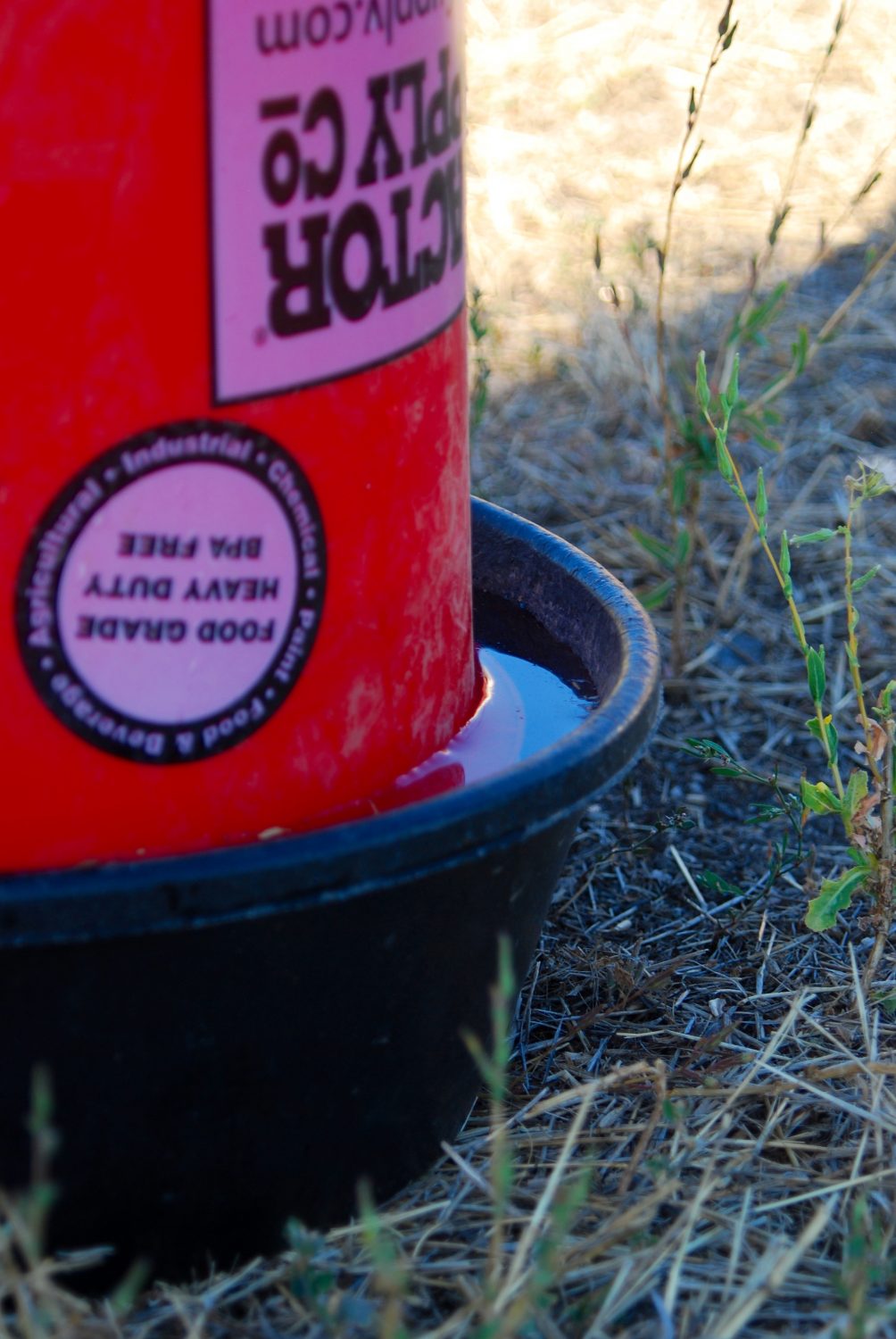




[…] The 5 Best Soil Moisture Meters […]